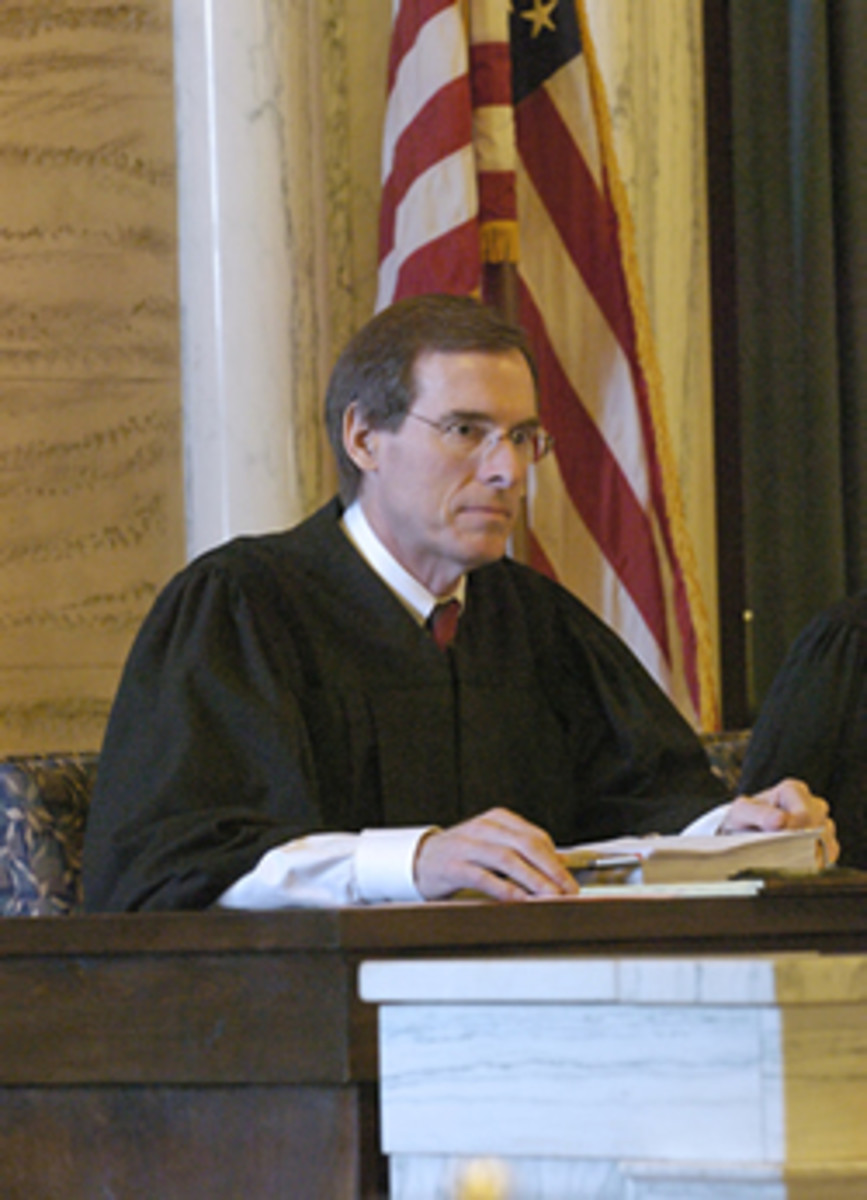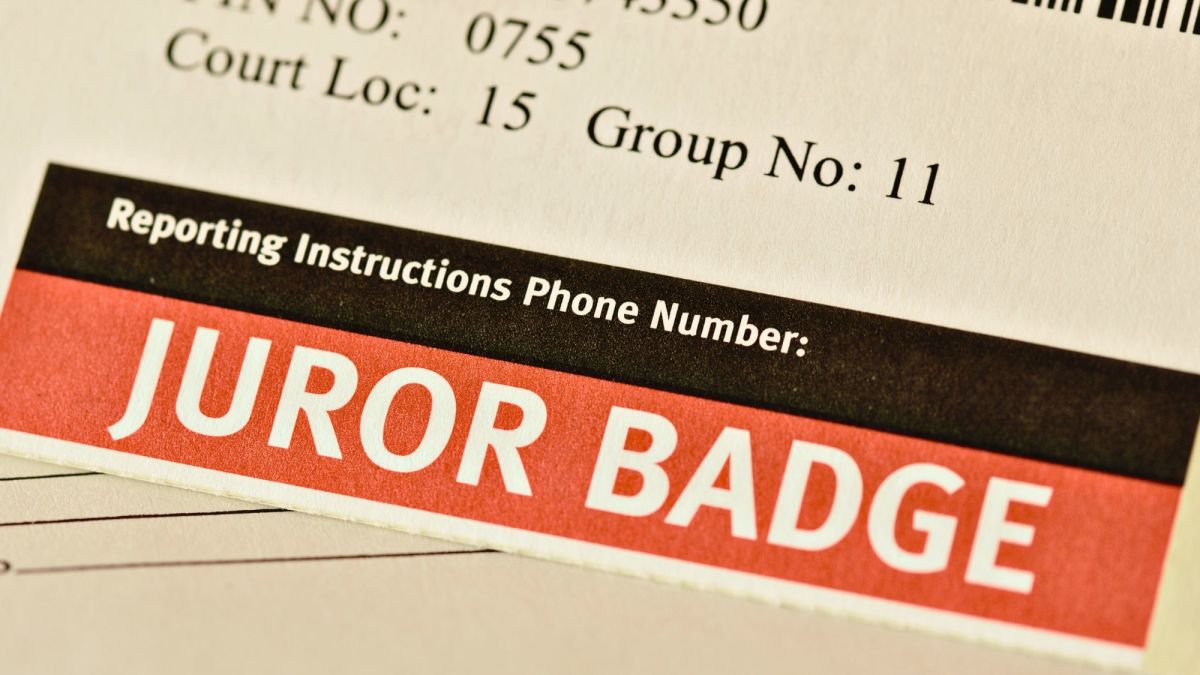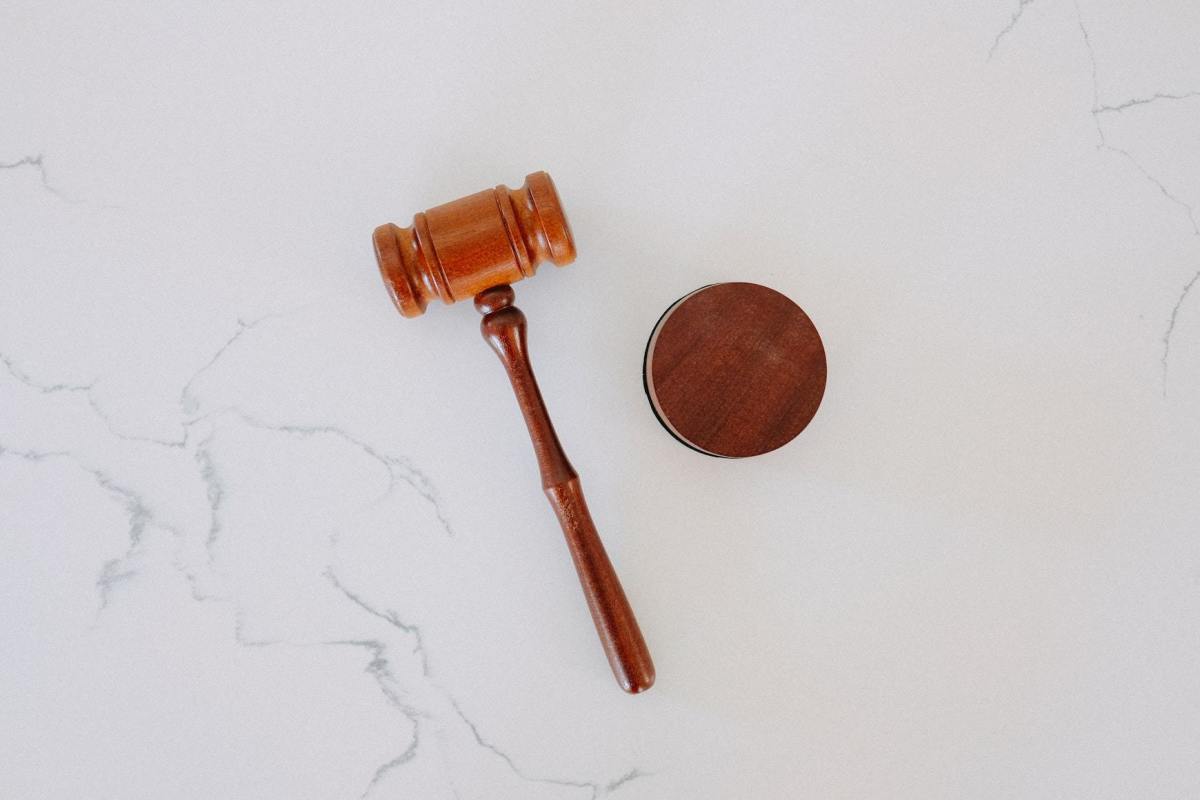How to File Your Own Lawsuit: Pro Se Litigation
Welcome!
Thanks for visiting my lens on filing your own lawsuit. Please note that this should not be considered as legal advice - in fact, you should seriously consider hiring your own lawyer. However, if you are bound and determined to handle your case yourself, this hub will probably be of immense benefit. (Just be aware of the fact that, although most courts are somewhat lenient with pro se litigants, they are actually supposed to hold you to the same standard as a practicing lawyer.)
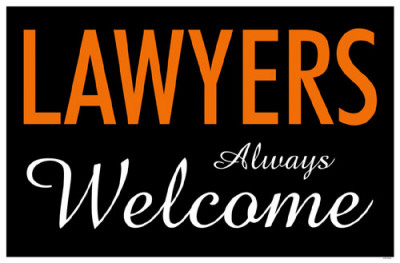
The First Step in a Lawsuit: When and Where to File
So, you've been wronged in some way and have decided to seek recompense via a lawsuit. However, rather than hiring a lawyer to take this matter on for you, you've decided to handle it yourself. (This is known as being a pro se litigant.) Well, there are several "firsts" in terms of things that have to be addressed before you actually get to the filing of a lawsuit.
First, there's the matter of your claim. Exactly who are you suing and what are you suing for? You have to get your arms around exactly what your grievance or injury is and who should be held liable for it. For instance, if your car was hit by a guy driving his employer's truck while on his way to a job site, you might sue the driver individually as well as his employer.
Next, there's the issue of timing. Most claims are subject to a statute of limitations, meaning that you have a limited amount of time in which to bring a lawsuit. For instance, with respect to a personal injury claim, some states require you to file a lawsuit within a year of your injury, while in others you may have up to two years or more. Similarly, contract matters generally have a 4-year statute of limitations, but again that may vary by state. Regardless, if you don't file your lawsuit within the statutory time period, you can look forward to having your case tossed out of court.
In addition, which court will you be suing in? Most individual matters can be handled in small claims court. These are courts that typically hear cases where the amount in controversy is relatively small (usually $5000 or less, although the amount may vary based on the state you're in). Small claims are also more expeditious and less formal, which appeals to pro se litigants.
For our purposes, just so we can have a fuller range of motion in terms of this exercise, we're going to assume that you're suing for $100,000 for a broken foot sustained in a car accident - you were hit by a guy driving his employer's truck. (Please don't take this to mean that every broken-foot or car-accident case is worth $100K; this is merely for purposes of our hypothetical.) Because this is in excess of the amount you can seek in small claims court, it will be necesary to file in the county district court. (Also, this is a little odd in that, for personal injury matters, you typically can find an attorney to represent you on a contingency basis, but let's just assume you balk at the idea of giving him 33% of any jury award for what you assume is an open-and-shut case.)
(FYI: you do have the option of suing in either state or federal court, assuming you meet the jurisdictional requirements. However, federal court is much more formal and is considered to be a format that favors defendants, so you will want to stick to state court.)
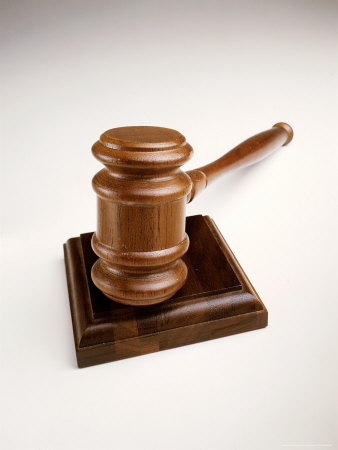
The Petition
The Petition is basically the document that is the foundation of the lawsuit. In it you will recite the facts that give rise to your cause of action. You can typically pick up the form for this at the courthouse, but the basic items it contains are:
The Parties: This will be you (the Plaintiff) and any Defendants you decide to sue. (As part of our hypothetical, we'll make the Defendants the driver of the truck that hit you and his employer.) For individual defendants, you typically put their residential address and where they can be served with process, which is usually the same address. For companies or organizations, you typically list their principal place of business - which may be out of state - and where they can be served with process. Most companies are required to have an in-state agent for service of process, and that's who is served on the company's behalf.
(FYI: "serive of process" or "service" refers to the delivery of the petition or complaint to the defendant - usually by leaving it with him or a responsible person (someone over the age of 18) at his business or place of residence.)
Jurisdiction: This term refers to the authority or power of a court to decide a matter. Typically, all you have to say is that the matter is within the jurisdictional limits of the court.
Venue: This term refers to the geographic area in which a case may be tried. Typically, the place where you file the lawsuit has to have a connection to the case (e.g., it's where the actions that make up your claim occurred). Here, you probably want to inform the court that a substantial part of the acts giving rise to your claim took place in the county where you're filing the lawsuit.
Background Facts: Provide enough of the facts as necessary to explain what happened and how you came to have a claim in this case. In our case, we'll want to say where you were and where you were going when the other vehicle struck you, when it happened, how the other driver was in the wrong (excessive speed, ran a red light, what have you), the injuries you suffered afterward, the impact the accident has had on you, etc.
Causes of Action: This is where you lists your causes of action - the claims that you are suing for under the law. For example, in our car accident hypothetical, you would be suing for negligence, pain and suffering, lost wages, loss of consortium (i.e., the society, affection and conjugal fellowship you enjoy with your spouse), mental anguish, etc. You will also ask for a finding of gross negligence and seek punitive damages. (Punitive or exemplary damages are extra damages that are awarded above and beyond the actual damages that a plaintiff suffered, and usually are an attempt to punish the defendant or set an example for other prospective wrongdoers.)
Jury Demand: This is where you simply request a trial by jury and inform the court that you have paid the necessary jury fee. This is not set in stone; you can usually request and pay the jury fee later. You can also change your mind and decide you don't want a jury, although the defendant could decide that they want a jury trial even if you don't. (FYI: most defendants prefer a bench trial - which is a trial where the judge will decide everything - rather than a jury trial, because the judge is more likely to focus on the law and not be swayed by emotion.)
Prayer: This is where you indicate what you would like the court to do: award you actual damages for your causes of action, award you punitive damages, award you attorney's fees (although you don't have any if you're pro se), etc.
Signature: The Petition needs to be signed. Usually, before your signature, you will have a closing along the lines of "Respectfully submitted" and then your signature. Following your signature, a lawyer usually identifies the party he is representing. You would put something along the lines of "Pro Se Litigant" or "Pro Se Plaintiff".
Filing and Service of Process:The Petition then needs to be filed at the District Clerk's Office (which is usually at the courthouse) and then served on the Defendants. (It's usually wise to have a second copy with you that can also be date-stamped at the time of filing; that way, you already have a copy to start building your case file with instead of having to wait until it becomes available at the Clerk's office.)
Service of process can most easily be accomplished via the sheriff or constable's office or through a private service. Both methods require a fee, but this is a lot easier than trying to hunt someone down yourself, serve them (which can often cause an adverse reaction), filling out an affidavit of service, etc. For our example, we will assume that you used a service to ensure that service was proper and all the formalities were met.
Schedule and Discovery
After service is accomplished, you have a live lawsuit. Your case will be assigned to a court, and at some point afterwards you can expect to receive a schedule form the court indicating deadlines in the case, such as for the completion of discovery, the designation of experts, and so on. These dates can be altered, often by agreement of the parties but also by a motion before the judge if the parties can't agree.
As to discovery, this is the part of the case where you are allowed to discover what your opponent knows about the facts. There are several discovery vehicles you can use, and a party usually has at least 30 days to respond. The primary methods of discovery are as follows:
Requests for Disclosure: These are usually the initial discovery requests made, and what you can ask for is usually dictated by the Rules of the Court. Usually, you will just make a Requests for Disclosure under the rules (you don't have to be much more specific than that - except maybe citing the rule number). Disclosures usually encompass things such as who the parties and potential parties are, who are people with knowledge of the facts, what damages you are claiming, etc.
(A quick word about rules. Every state has their own Rules of Civil Procedure, which governs how lawsuits and trials are to be conducted. While we are going over what the relevant rules generally are, you will need to be familiar with the specific Rules for your state, or - if you file in federal court (or somehow find yourself there) - the Federal Rules of Civil Procedure. Moreover, each county can have their own local rules for conducting cases. Finally, each judge can have their own spcific Rules of Court. Got all that?)
Requests for Admissions: These are requests wherein you ask the defendant to admit or deny certain facts. You can say, for instance, "You were speeding in excess of the legal limit when your truck hit me" or "You ran a red light and then struck my car," and the Defendant has to admit or deny it. You should probably expect objections to a lot of your RFAs, but you usually can ask an unlimited number of them.
Requests for Production: These are usually requests for documents or for inspection. For instance, you can ask for documents related to the repair of the vehicle, or you can ask to inspect the vehicle itself. Normally, you will ask for documents related to your cause of action - here, anything related to the accident: repair bill for the truck that hit you, reprimands for the employee, company policy on operating company vehicles, etc. You can usually ask for an unlimited number of RFPs.
Interrogatories: First of all, Interrogatories - which are written questions that you ask the other side about the case - are typically limited with respect to the number that you can ask for. Usually, you can only ask 25, so you want to get them right. Moreover, the answers are usually required to be given under oath, meaning that you receive sworn statements that the information in them is true.
Depositions: A deposition is the oral questioning of a witness or opponent, which is conducted under oath outside of the courtroom. Because it is sworn testimony, you can often use a witness' deposition testimony as opposed to calling them live at trial. This also allows you to determine what a witness knows and will say at trial, as well as locks in their testimony so that they can't change their story later. Depositions usually have a time limit - roughly six hours - and are recorded by a court reporter, who is authorized to issue the oath to the deponent (that is, the person testifying).
At the end of the discovery process, both you and your adversaries will usually have roughly the same amount of knowledge about the case. However, depending on your litigation strategies, you may be focused on different things.
Experts
Sometimes you may find it necessary to employ an expert to testify on your behalf. For instance, you may need someone to recreate the accident to show that - based on the damage, skidmarks, etc. - the defendant had to be going much faster than he testified. Usually, you have to designate your expert by a certain date, and they have to provide their written report - assuming they are drafting one - within a certain period of time. Also, you'll have to make your expert available for deposition. (Likewise, you'll want to depose the other side's expert if they have one.)
Trial
Most peope are surprised to find out that only a very small percentage of cases actually go to trial. In fact, more than 95% of all cases actually settle before trial. Usually, this is because - following discovery - each side has a far better idea about the strengths and weaknesses of their case, and it's a lot easier to reach an out-of-court resolution.
Should your case fail to settle, you should be cognizant of the fact that going to trial is a matter unto itself. There are a lot of moving parts here, from knowing what objections to make to preparing the jury charge, to prepping your witnesses. Basically, everything you've worked for in terms of the case for the last year or two will come down to this. That being the case, rather than try to cram everything about a trial into this portion, please visit my hub on How to Represent Yourself at Trial.
Judgment and Appeal
And the end of the case, the jury will come back with a verdict. if you're lucky, in our hypthetical, the jury awarded you your full $100K in actual damages, maybe another $100K in punitives and all your fees and costs. Hopefully, that's the end of the matter, but there's always a chance that the other side will take issue with the result and file an appeal.
Basically, an appeal is a request to a higher court to look at certain matters that happened in the case and to reverse the decision for those reasons. However, you have to have a basis for appeal, meaning that you must object - and be overruled - on certain points during the case. Those points that you object on are what the appellate court will look at. In essence, you are telling the appellate court, "Look at this: the trial judge got this part wrong. I objected and was overruled, but it wrongfully made the whole case go against me..." Remember: if you never objected to anything, you probably have no basis for appeal. And if you or the other side decide to appeal, I seriously recommend getting a good appellate lawyer to represent you. I don't think I've ever heard of a pro se appellant (who wasn't a lawyer) being successful at the appellate level.
That, in a nutshell, sums up what you can expect as a pro se litigant. Naturally, it's not possible to touch on every possible scenario, but this, in general, will probably put you well ahead of any other pro se litigants out there.


